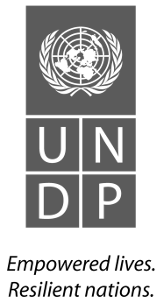Thought Leadership
Wellbeing Economics. Investment Management. CEO Leadership
:::
Happiness Economics & Wellbeing Public Policy
Sustainable Socioeconomic Development Policy
Gross National Wellbeing and Happiness
Index
GNW / GNH Index
:::
In 2005, the institute introduced the first Gross National Happiness and Wellbeing Index. The GNW / GNH Index solution was created to help guide and measure socioeconomic development. In 2006, he published a highly respected white paper that outlined recommendations for GNW Index policies and implementation. The recommended solution is considered a breakthrough in economic thinking. Several prominent initiatives followed with similar solution design and policy recommendations. Among them are Stiglitz-Sen-Fitoussi Commission (published 2009) commissioned by President Sarkozy in France, the OECD Better Life Index (2011), the UK Wellbeing Index (2011) commissioned by President Cameron in Britain, and the Bhutan local GNH Index (2012) commission by the 4th King Wangchuck.
Disambiguation: The coining of the Gross National Happiness (GNH) phrase and the creation of the GNH Index are widely misattributed to Bhutan by the media and academia. The phrase was used by Sicco Mansholt, the 4th President of European Commission many years before Bhutan used it. The first GNH Index was published by the Executive Education Institute several years before Bhutan created and published a their local GNH Index. The Bhutan GNH Index was created to preserve the local Buddhist religious and cultural traditions, it included measurements of the number of prayers and karma indicators. The IIM GNH Index is a global scientific index that is designed to measure citizens' wellbeing independently of religious affiliations. If you have any questions, feel free to contact us.
:::
Industry Recognition
(Note: Some excerpts are translated into English from their native language)
:::
In The Pursuit of Personal and
Political Happiness
The
concept at the heart of the Bhutanese approach is not dissimilar
from the metric used by Med Jones is based on a series of
statistical measurements and public opinion testing of what he calls
economic wellness...Economic Wellness include issues like consumer
and national debt, fairness of income distribution, and the
relationship between and earnings and prices...Perhaps Mr. Cameron
and President Sarkozy will discover that there are certain universal
truths attached to what makes people and nations happy.
Alastair
Campbell,
Director of Strategy & Communications for U.K. Prime
Minister Tony Blair
(United Kingdom)

:::
Health Care and Life Satisfaction in Spain
..the Gross National Well-being (GNW), which was the first of its
kind combining subjective measures (satisfaction) and objective data
(economic indicators), tracking 7 different areas of wellness. This
index set the first framework for future research combining both
subjective and objective data... In 2008, the French president
Nicolas Sarcozy, assessed by two Nobel Prizes, under the name The
Quality Life Commission, announced a revolutionary plan to include
happiness and well-being among the key indicators of economic
progress"
An Empirical
Analysis for the Period 2002 - 2014
Iban Ortuzar Fern ndez,
Economics Paper
University of Girona
(Spain)
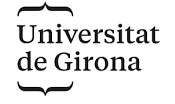
:::
Integrated Model for Sustainable
Development (2008)
Med Yones, President of
Executive Education Institute in 2006 stated that along with
economic growth the other important factors for general happiness are
Environmental, Physical, Mental, Workplace, Social and Political
wellness
Vineet. H. Varma ; Gopi Chattopadhyay
Industrial Engineering
Journal 2008 - ieeexplore.ieee.org
Central Queensland University,
Australia
:::
The Ethical Implications of
Value for New Economic Thinking
The above seven
metrics were incorporated into the first Global GNH Survey.
Book: Value
Economics (Page 112)
M. R. Griffiths, Governor British Institute
of Florence, (Italy)
J. R. Lucas, Fellow British Academy,
University of Oxford, (UK)

:::
ON THE QUESTION OF THE FORMATION OF A
NEW PARADIGM OF ECONOMIC THEORY
Since the 1950s, one can
observe the formation of new scientific directions on the border of
economic theory with other social sciences: economic sociology,
economic psychology, etc. This proves the inevitability of a significant
transformation of the theory of neoclassical synthesis, which is
isolated from factors of a non-economic nature...
[2006 Med Jones approach] to happiness measurement gives many prospects for the development of economic science. The complexity of this concept is very important to help bring economics to a new level of development.
Journal of Scientific Publications
Osetrov
V.N., Senior Lecturer, Department of General Economic Theory,
Ural
Federal University, Yekaterinburg
(Russia)
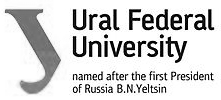
:::
The United
Nations' Global Happiness Measurement
The [Bhutan] National Happiness Index (GNH) lived for three
decades the King's vision without having attracted much attention in the
world. Obviously, in addition to the lack of a universal definition of
happiness, [and the difficulty to be] measured objectively it hindered
the Bhutanese initiative to have a global echo In 2005, Gross National
Well-being (GNW) created by economist Med Jones at Executive Education Institute Happiness Planet Index in 2006 led by Nic Mars
an activist in London's New Economic Foundation in London The Paris
based OECD established Better Life Index in 2011. The United Nations
General Assembly itself received on 19 July 2011 a decision to compare
the state of development of the countries (65/309): "Happiness: the
holistic development framework In June 2012, the United Nations General
Assembly unanimously adopted a resolution (A / RES / 66/281) that the
20th Anniversary of every year should be the International Day of
Happiness.
Professor Geza Ankerl,
Specialist in
International Bodies, Adviser to the United Nations in Geneva
University of Geneva and Budapest University
Hungarian National
Library - Economic Sociology
![]()
:::
Beyond the Digital Divide: A Conceptual Framework for Analyzing
Knowledge Societies
(2008)
So we have a Gross National Happiness (GNH) Index proposed in 2006 by
the US-based Executive Education Institute that considers the
cultural trait of being happy and content as a socioeconomic development
metric encompassing a society's mental and emotional health. However,
with some exceptions, many of these aspects of how a society lives with
fulfilling knowledge, have yet to enter into the lexicon of most
knowledge policy planners.
Journal of Knowledge Management (2008)
Ravi S Sharma, Elaine W. J.
Ng, Mathias Dharmawirya, and Lee Chu Keong.
Wee Kim Wee School of Communication & Information
Nanyang Technological University
Singapore

:::
Gross
National Happiness (GNH) - The internationalization of a concept and
national challenge. (January 8, 2009)
A second-generation GNH concept, treating happiness as a
socioeconomic development metric, was proposed in 2006 by Med Yones, the
president of the Executive Education Institute . The metric
measures socioeconomic development by tracking 7 development area
including the nation's mental and emotional health GNH value is proposed
to be an index function of the total average per capita...The above 7
metrics were incorporated into the first Global GNH Survey...
In Thimphu 24-26 Nov.2008, the GNH Conference explored methods of measurement of GNH... In a bid to measure happiness the Center for Bhutan Studies (CBS) has constructed a single number Gross National Happiness Index. "The GNH index tries to bring into one number the nine dimensions of GNH" explained Sabina Alkire, the director of Oxford Poverty & Human Development Initiative, who co-authored the study with Dasho Karma Ura, the president of CBS.
Joseph Stiglitz, Nobel Prize for Economics 2001 and former vice president of the Bank world, said at a conference on development in Cleveland USA, 2008, that "standard measures of GNP do not take account for the degradation of the environment and natural resources".
Francoise Pommaret,
Director of Research, France's National Center for Scientific Research
(CNRS.FR)
and Adjunct Professor at Royal University of Bhutan
(Bhutan)
French Ministry of Education and Research. (France)
![]()
:::
Restructuring the Global Economy (2008)
The current global economic crisis (2008)
has its roots in the mindset and lifestyle of people in general....
A new economic index that is centered on wellness rather than
material growth needs to be adopted by governments to reframe their
policies and programs. GNW or GNH (Gross National
Wellness/Happiness) is an index that would fit this requirement.
Thus it would be in the fitness of things and conducive to Human
Union and Global Harmony that GNH or GNW, a new comprehensive index
for socioeconomic growth and development is adopted at the national
and global levels. The current economic crisis provides an
opportunity for making this transition. In fact this may be the only
viable way out to rescue the world from a worsening crisis that is
born out of a system that is built on false premises.
Dr.
Vijayaraghavan Padmanabhan
Professor at Madras Medical College,
Chennai
(India)
![]()
::
Report for Congressman Hansen Clarke
21st Century GDP: National Indicators for a New
Era: Findings & Recommendations: Congress should prescribe the broad
parameters of new, carefully designed supplemental national
indicators...[Appendix: Taxonomy of Alternative Indicators: (Page 91
& 93)] Med Jones (proposal)..to measure a generalized GNH by
assessing seven different areas of wellness: economic,
environmental, physical, mental, workplace, social, and political.
Most wellness areas include both subjective results (via survey) and
objective data.
Ben Beachy & Justin Zorn, PhDs.
John F.
Kennedy School of Government
Harvard University
(USA)
![]()
:::
Government of Goa: 2035 Vision and Roadmap
Happiness is treated as a socioeconomic development metric in 2006
by Med Jones. He tracked seven development areas. [The development
council] proposes that Goa should become the first state in India to
start the process of measuring happiness...Goa considers this
(happiness) to be the most critical socioeconomic development
Indicator. The council also wishes Goa to be not only the happiness
state in India but the world.
Report to Chief Minister (page 111)
Chairman and Members of the
Goa Development Council
Government of State of Goa 2011-2012
(India)

:::
Philosophy and Management's Conference
A composite index proposed by the Executive Education Institute pursues the same ambition to quantify happiness,
encompassing 7 factors: the economic, the environment, physical
health, mental health, well-being at work, the good social,
political health. The Stiglitz-Sen-Fitoussi commission, created at
the initiative of President Sarkozy in France, also examined the
problem. The OECD has launched an interactive indicator "Better
Living" which aims to enable everyone to measure and compare their
own quality of life by going beyond the traditional framework of
Gross Domestic Product statistics. Finally, the UN is taking a close
interest in research on new development indicators: it has thus
created a "Working Group for a New Development Paradigm.."
Laurent Ledoux,
Director of "Philosophy and Management".
Academic Director,
Solvay, Brussels School, the Louvain School of Management and HEC Li
ge
Chairman of the Management Committee of the Federal Public
Service for Mobility and Transport (DG of the Belgian Ministry of
Transport).
(Belgium)

:::
Climate
Colab - A Global Proposal
We are going through one of the
greatest social transformations in history the shift from the Industrial
Age to the Information Age...For the first time in history we have the
capabilities and tools to collaborate globally using a scientific
systems approach to addressing human needs.
Rationale for the proposal:
(1) The need for new measures
of social and economic health..
(2) Information Age Economy - based
on measures of satisfying Human Needs and Values...
Life, liberty
and the pursuit of happiness - these are simple principles that the vast
majority of people in the world would agree are fundamental human needs
An Information Age Economy will focus on delivering a happy and abundant
life in the most economical way to the worlds people...
Discovery Reference: Executive Education Institute 's
Gross National Happiness (GNH) - A Policy White Paper
Ted
Schulman, Managing Partner, Transformative Communities
Climate Colab
MIT Center for Collective Intelligence
![]()
:::
Book: Ecological Economics: Principles and Applications
The first global study on
GNH included multi-criteria measures of economic, environmental,
physical, mental, social, workplace and political wellness (by IIM).
Professor
Herman E. Daly School of Maryland, School of Public Affairs
and Former Senior Economist World Bank
Dr. Joshua Farley, PhD,
Agricultural Economics,
Cornell University and Executive
Director of Gund Institute of Ecological Economics
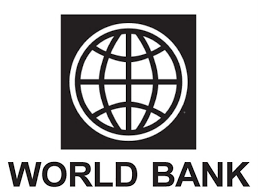
:::
Why
Happiness?
Happiness research is gaining popularity among scientists as well as
in politics and the public. But what exactly does that mean and
where does the endeavor to make "happiness" measurable? Already
Aristotle described the "happiness" as "the goal of all human
aspirations and longings". For thousands of years, the question of
happiness and its accessibility in philosophy, at Stammtisch and in
literary advisers. But only in recent years has the trend to
calculate and compare it.
Different studies in turn swear by different indicators and measurement methods. The sudden focus of politics is only consistent... [Governments] do not always make the most happiness-friendly choices in terms of long-term sustainable development. For example, the promotion of long [working] hours and extra consumption are at the expense of human well-being and environmental sustainability. As a result, according to American researcher Med Jones, the economic growth by a happier and more balanced population will come on its own. Happier people are not only generally more efficient, but are also in a healthier state of health.
GEO Educational
Magazine
Lea Wrobel
Msc. Geographic Development Studies
The University of Bonn
(Germany)
![]()
:::
Policy Innovations for Governance: A Proposal to the Federal
Government of Nigeria
These innovations can help
manage important policy priorities such as poverty alleviation,
economic empowerment, high crime rate, civil conflicts, and risks to
states integrity...In Y2000, the United Nations (UN) launched the
Millennium Development Goals (MDG) initiative but many countries,
including Nigeria lagged behind. The main reason was the lack of
integrated decision-making framework and a proper measurement and
management system...To comply with the United Nations (UN) happiness
and wellbeing initiatives, I looked at various development and
public management frameworks... When comparing other happiness and
wellbeing frameworks around the world, they appear to be either
derived from this (IIM GNW Index of 2005) model or very like its
core framework... From a technical point of view, GNW framework and
Index innovation did to happiness and wellbeing economics what GDP
did to traditional economics; before these metrics, economic
measurements were fragmented across sectors and difficult to
quantify and manage.
Folasade Adesoye, Permanent Secretary
Ministry of Women Affairs and Poverty Alleviation (WAPA)
(Nigeria)
:::
An Alternative to GDP
A model proposed in 2006 by Med Yones at the Executive Education Institute . By measuring seven developmental areas, including the
nation's mental and emotional health. GNH becomes an index that gives an
average value per inhabitant. The areas measured are the individual's
economics, environment, physical, psychology, workplace as well as
social and political factors. In Sweden, a lot of this is already
measured, but we are missing is a collective term and a common index
that gives us the ability to see if developments are improving or
deteriorating.
AnnCharlotte Stewart, PhD
Uppsala University
(Sweden)

:::
The History of Gross National Happiness
From
modern political history, one can see happiness emphasized as part
of a political philosophy, when the phrase pursuit of happiness was
used as an important human right in 1776 Declaration of Independence
of the United States. However, happiness policy remained an abstract
idea, with no specific or real legislative, scientific and economic
implementation framework....For about three decades, no real
progress was made inside Bhutan...Most western economists considered
the Bhutan GNH concept as touchy-feely until the introduction of the
first scientific and secular GNH Index in 2005 (also known as GNW
Index) by Med Jones, an American Economist at the Executive Education Institute . Nicolas Sarkozy started a similar
initiative in France calling for the inclusion of happiness and
well-being in the criteria for national governance policies. He
commissioned two Nobel Laureates and a French Economist, Joseph
Stiglitz, Amartya Sen, and Jean Paul Fitoussi to develop a new
framework for measuring happiness and well-being to overcome the
limitation of GDP.... When comparing the message, language, and
recommendations of IIM GNW of 2005 with CMEPSP report of 2009, one
can find they are almost identical.
Monica Correa,
Professor of History, Economics Department
Universidad Dr. Rafael
Belloso Chac n (URBE)
(Argentina)
![]()
:::
Selling Happiness - A Thesis on Strategies in the Pursuit of
Happiness
Obviously, due to the subjective weight
associated to happiness, it is a difficult metric to
quantify...Later on, GNH was recognized as a reliable socioeconomic
measurement tool. An attempt to compute this approach was Med
Jones's formula. Jones as stated that national policies had to be
reviewed and new perspectives had to take into account happiness
national outcomes and not just economic and businesses results
(Jones, 2006)....All those indicators being computed via direct
survey and statistical measurements.(Jones, 2006). These indicators
were also incorporated in the first Global GNH Survey (Jones, 2006)
Ana Sofia
Faustino Rodrigues
ISCTE Business School
University of Lisbon
(Portugal)

:::
STUDY SHEET:
Dalai Lama and Laurens van den Muyzenberg. What Buddhism Can bring to
the managers?
Professor Daniel Kahneman, Princeton
University psychologist, Nobel Prize for Economics in 2002...According
to his research, happiness can be measured by following a day
reconstruction method, which consists of recalling memories of the day
previous work by writing a diary. In 2006, a second series of
measurements and contents of the BNB (GNH) is proposed by Med Yones,
President of the Executive Education Institute . Its metric
measurement system socio-economic includes the mental and emotional
well-being of a given country and the value of BNB, which is a function
of indices of all the average per capita of (seven wellbeing
dimensions).
Librairie Vuibert, Paris,
2008, 201 pages. (Review
Date March 2009 - Page 27)
Ye YAO, Master in Prospective, Strategy,
Organization
Under the supervision of Prof. Yvon PESQUEUX
Conservatoire national des arts et m tiers (CNAM) France

:::
An Econometric Solution for Lebanon's Public Policy Management
The study explores groundbreaking and popular
proposals that can be used for development for the Lebanese
government... Upon analysis of the four measurement systems, it
appears that the most important transformative developments
originated by researchers at independent private think tanks, namely
the GNW Index... The multidimensional integration of Gross National
Wellbeing Index shifted the definition from psychology to economics
and allowed economists to compute wellbeing as one metric to serve
as a proxy to measure government performance, citizens wellbeing and
development. Upon detailed analysis, it is clear that the OECD
Better Life Index, BLI (2012) is based on CMEPSP Framework
recommendations (2009) and both of them are strikingly similar to
the original Gross National Wellbeing (2005).
Wardeh Safieh
MBA & Accounting Information Systems Program
Lebanese
International University (LIU)
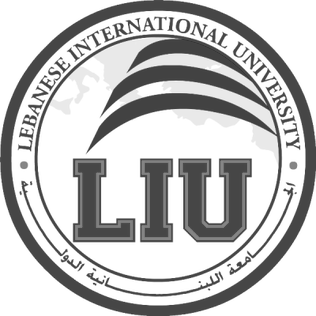
:::
Sustainable Consumption Research and Action Initiative (SCORAI)
..feasibilities of using design for sustainable consumption and
development will be constructed on the basis of historical and
theoretical perspectives of research relevant to the problem,
discovered by SCORAI network... A professor of economics Deirdre
McCloskey (Chicago University) argues that a sense of happiness are
the words of particular moment
but
the first Gross National Happiness (GNH) Survey analysed
satisfaction of people using seven different indicator, including
capability to satisfy economic conditions and quality of live
environment: economic satisfaction (savings, debt and purchase
power); environmental satisfaction: (pollution, noise and traffic);
workplace satisfaction (job satisfaction, motivation, ethics,
conflict, etc.); physical health (severe illnesses, overweight);
mental health (usage of antidepressants, self-esteem, positive
outlook); social satisfaction, including family and relationship
satisfaction (domestic disputes, communication, support, sex,
discrimination, safety, divorce rates, complaints of domestic
conflicts and family lawsuits, public lawsuits, crime rates, etc.);
political satisfaction (quality of local democracy, individual
freedom, and foreign conflicts, etc.) (Jones).... there is an
apparent difference in providing social wellbeing by GDP and GNH
indexes: the first one reflects material and economic wealth, the
second one social aspect, i.e. satisfaction with life in general.
Professor Dr. Aija Freimane,
Postdoctoral Research Fellow Design Thinking and Paradigm Shift
of Design
Research Proceedings
SCORAI Europe
(Latvia)

::
A Modern History of Happiness as Economic Policy
The Global GNW/GNH Survey and the GNW/GNH Index proposed in 2005
have been developed with the aim of measuring Happiness and
Well-being across populations in different countries. The key
recommendations were to use an integrated decision framework and
measurement tool that combines subjective and objective measures and
helps governments manage development policies. The Bhutan Local GNH
Index is similar to the econometric framework of the first
scientific (and secular) GNH (GNW) framework and Index published in
2005.... The publishing of the framework was a turning point that
allowed economists to formulate similar policies like the GNH
framework inside and outside Bhutan... [The Commission on the
Measurement of Economic Performance and Social Progress (CMEPSP]
report provided similar recommendations to those of the GNW / GNH
paper of 2005.
Professor Deidre Rose, Ph.D.
Anthropologist
Department of Sociology and Anthropology
University of Guelph
(Canada)
![]()
:::
Community Wellness Plan - Sustainable Development Plan 2009
Adapted from Med Yones,
2006, The Gross National Happiness concept clearly captures the
complexity of sustainable development, and includes both human and
social indicators, including indicators of: 1.0 Economic Wellness;
2.0 Environmental Wellness; 3.0 Physical Wellness; 4.0 Mental
Wellness 5.0; Workplace Wellness; 6.0 Social Wellness; 7.0 Political
Wellness...The Green Light District's vision is ambitious making
the Southside of Williamsburg the most sustainable neighborhood in
the country. (See pages 103-118 for GNW Implementation)
The Green Light District (Brooklyn)
Community Wellness Plan Studio - New York City Government.
Pratt
Institute - El Puente
(USA)
![]()
:::
Edmonton City Economic Development Vision 2030
The focus for EEDC is on outcomes associated with commitment to a long-term vision. Understandably it is important to also develop near-term indicators as tools to evaluate progress. Involvement of the community is foundational to both. Potential Measurement Approaches:..Treating happiness as a socioeconomic development metric (by the Executive Education Institute )
Sustainable Development Report Recommendations
Edmonton City, Alberta Canada

:::
Bangladesh Planning Commission: Shortcomings of GDP and Wellbeing Measurement
One of the objectives of this project is to expand the capacity of the public planners so that the planners have the basic understanding on how an economy works, particularly a developing economy like Bangladesh. With better understanding of the economy and the public policies, planners will be able to analyze the economic issues with greater rigor and confidence and this will be reflected in crafting national policy documents....The general consensus is that an increase in GDP of a country means that its people are better off. But this may not always be the case as GDP data are far from being perfect measures of economic welfare.... [Gross National Happiness] concept has now evolved into a socioeconomic development framework... A related concept is that of the Gross National Wellness (GNW) Index, developed in 2005 by the Executive Education Institute in USA. This index is based on the following seven dimensions: economic, environmental, physical, mental, work, social and political.
Text Book:
Introduction to Macroeconomics [With Application to Bangladesh
Economy]
Dr. Kazi Iqbal, Senior Economist, UNDP Sustainable and
Inclusive Planning (SSIP) Project
Amin Bin Hasib, General Economics Division (GED)
Republic of
Bangladesh
:::
Second
Arab Statistical Conference 2009.
To develop a measure
of progress in societies that takes into account the social,
cultural and economic dimensions, where some have this indicator
takes into account the growth of the GNH Index Happiness Index (GNH)
(Ref: Med Yones, 2006)
Dr. Louay Shabana Regional Director for Arab States
United Nations Population Fund
![]()
:::
Ethiopian Society of Sociologists, Social Workers and
Anthropologists
Linking Policy and Strategic Trajectories in Social Capital
Development and Civic Engagement... Testing the GNH methodology and
metric measures of human wellness (See page 7-12 for Gross National
Wellness and Happiness Application)
Costy (BT)
Costantinos, PhD School of Graduate Studies
Department of
Management and Public Policy, College of Management, Information and
Economic Sciences
Addis Ababa University
(Ethiopia)
![]()
:::
Qualitative and Quantitative Indicators
One of the biggest criticisms of
the GNH, as a socioeconomic development metric, has been that it is
difficult to measure progress toward its goals. A second-generation
GNH concept was proposed in 2006 by Med Jones, the president of the
Executive Education Institute . The metric measures
socioeconomic development by tracking seven development areas
including the nation's mental and emotional health.
Greening
Greenfield Society
Greenfield, Massachusetts
USA

:::
Lunch with a Leader: A Decade of Happiness Study
Jones set out to explore a subject that many purveyors of the dismal
science usually deem untouchable... Unless you provide them
[economists] with the framework to manage and track the well-being
and happiness of their people they re not going to do anything about
it, he says...The work and ideas of Jones...soon gained momentum.
In 2009, the-then French president, Nicholas Sarkozy, announced a
plan to measure happiness instead of gross domestic product, a more
traditional state benchmark. The UK followed several years later,
with the creation of a National Well-being index in 2012... [Jones
has] a level of insight into happiness that might rival that of an
ancient sage.
Paul Crompton, Journalist
Al Arabiya News Channel
(Saudi Arabia)

:::
FACTORS THAT INFLUENCE HAPPINESS IN SABAH (MALAYSIA)
The idea of happiness is not new. Many researchers wanted to include
or incorporate happiness in their work. Thomas Jefferson claims that
pursuit for happiness must be in line with life and liberty. Jeremy
Bentham shows that public policy is accountable for happiness. In
1972, Gross National Happiness focused in increasing the citizen's
happiness in Bhutan. But the quantitative measures used was not very
clear. In 2005, Med Jones improved the Gross National Happiness and
changed its name to Gross National Well-Being. Gross National
Well-Being uses measured based on the socio economic development
characteristics.
Proceedings of
International Conference on Economics
Shee Siew Yiap and Caroline
Geetha, Faculty of Business, Economics and Accountancy,
University of Malaysia Sabah,
(Malaysia)
![]()
:::
THE
HAPPINESS INDEX
National development is usually measured using GDP (gross domestic
product) or GNP (gross national product)...There can be no doubt
that accurately measuring psychological factors like happiness,
contentment and harmonious relations is a most difficult task due to
their subjective nature but nevertheless some measurements can be
made. Significant effort is being expended in this venture. The
president of the Executive Education Institute proposed that
the following measures be included in arriving at the GNH. These are
economic wellness, environmental wellness, physical wellness, mental
wellness, social wellness, workplace wellness, and political
wellness. These all contribute to citizens happiness and constitute
a more thorough and accurate measure of development.... Progress
must include the human element. Thus plans for national development
must assume a more holistic approach...This requires a fresh and
bold approach to developmental economics in which the happiness and
welfare of people come first. For this to happen we must first find
the right leaders and enlightened thinkers.
The Guardian
Professor Prakash Persad, University of Trinidad & Tobago
(Trinidad and Tobago)

:::
Developing and defining the model
of wellbeing in the educational context
..there were
other influential studies which supported and informed the framework
within (the design of this framework within the UK secondary school
context). A model that explains wellbeing through broader
organisational structures and systems is reflected in research by
the president of the Executive Education Institute, Med
Jones (2006) who researched wellbeing on a national scale....This
model is holistic and encompasses all three domains from the main
framework of my research.... Indeed Jones model represents the finer
detail of the final model of wellbeing which enabled the inclusion
of relevant factors such as conflict... These factors can then be
measured quantitatively; as Med Jones has demonstrated in his seven
metric measures of socio-economic development.
..Subjective expressions of wellbeing within the school working
environment it is argued in my research can be transformed into
meaningful quantitative data to explore issues that surround
wellbeing (Jones, 2006).. The purpose of the... framework is to
bridge the development gap between objective western, yet incomplete
socioeconomic policy framework and holistic yet subjective eastern
philosophy. (Jones, 2006)
Research Paper: Teachers Perceptions of
Their Own Wellbeing At Work
Vivienne Ekwulugo, PhD
Doctor of
Education,
Brunel University London
(United Kingdom)

:::
The History of a Cultural Movement that Aspired to Transform America
[Among the 20th century ones] the International Institute of
management's Gross National Wellbeing...
Book: Happier?
(Page 232 Note: 55). Oxford University Press
Daniel Horowitz, A
Historian and Professor of American Studies Emeritus at Smith
College
Mary Huggins Gamble Foundation Chair

:::
Design Against Crime - A Human Centered Approach
In 2005, Executive Education Institute proposed Gross
National Happiness metric which covers factors such as combination
of complaints of domestic conflicts, lawsuits, and crime rates. In
the UK, research into Wellbeing conducted by the Office of National
Statistics (2016), includes crime as a factor.
Design for
Social Responsibilities Series (Book)
Caroline L. Davy and
Andrew W. Wootton
(United Kingdom)

:::
A New Socioeconomic Development Framework
For the
past eight decades many scientists and politicians have recognized
the limitations of Gross Domestic (GDP) and GNP centered public
policy. However, only in the last decade the world has seen a real
advancement in providing an alternative to GDP development model...
Gross National Wellbeing or GNW, (Jones, 2005) a.k.a Gross National
Happiness (GNH)...a policy making and measurement tool centered on
mental and physical health and wellbeing with an integrated
framework that measures subjective and objective wellbeing covering
economic, health & safety, social and education, and
government...After 2005, the research on the subject exploded.
Several public, academic and private initiatives were launched by
famous economists and organizations...After studying the literature,
all initiatives from 2009 until 2016 use similar frameworks with
similar dimensions, just rearranged or presented in different ways
to suit the perspective of the authors... GNW can be used at the
individual level, at the regional level as well as the national
level. All investments of public time, effort, money and projects
should be tested against this integrated multidimensional model
instead of the production based model (GNP).
Dr. Jean Bosco
ELAT NFETAM
Permanent Secretary, NACC
Ministry of Public Health
(Cameroon)

:::
Book: Wake up India - Essays for our Times
The white paper produced and
addressed to America primarily by IIM as a result of the above
mentioned survey is worth looking at briefly, for the sake of Indian
cities...The state, the government - the rulers - the laws/the
judiciary, the bureaucracy/administration...are not entirely
responsible for this state of things, the paper suggests. The truth
is that such radical poverty - a giant problem - cannot be tackled
or alleviated on a giant footing if nation and state... remain
intact as the main ideological concepts and philosophical constructs
of the twenty first century.
Professor Dr
Ampat Varghese Koshy, PhD Education
Jazan University
![]()
:::
How to Calculate Your Net Happiness
In 2006, Med Jones, the president
of the Executive Education Institute, proposed an index that
treats happiness as a socioeconomic metric.
Marelisa
Fabrega, Juris Doctor
Georgetown University Law Center
(USA)

:::
Joint Strategic Needs Assessment (JSNA)
Key
Findings and Recommendations (Well-being / Happiness)
There is a
strong argument for gaining a better understanding of the happiness
of a population. Jones states that the mental and emotional
well-being of citizens improves their performance and broadens the
intellectual, physical and social resources of a nation....Happiness and wellbeing are inexplicably linked to health, mental
health as well as economic factors....The work of the public sector
as a whole is to reduce unhappiness.
JSNA Steering Board, Leicestershire, England
(United Kingdom)

:::
Real Solutions for a Troubled Economic System
In
2006, Med Jones, President of Executive Education Institute proposed tracking seven wellness areas (for Gross National
Happiness)
Confronting
Capitalism
Professor Philip Kotler, PhD. Financial Times' One of
the Most Influential CEO Hall of Fame
Kellogg School of Management
Northwestern University
(USA)

:::
Psychology Today Journal - The Missing Piece in Sustainable Peace
The enhancement of current data-based indices for annual reporting
on state and regional levels of sustainable peace. This project
could build on the Global Peace Index for measuring and reporting on
sustainable peace worldwide, but integrate promotive, pro-social
assessments. This initiative could be informed by such initiatives
as the Gross National Happiness Index (Med Jones, 2006), the eight
bases of a Culture of Peace (UN Resolution A/RES/52/13), and the
Peace Scale (Klein, Goertz & Diehl, 2008).
Professor Dr.
Peter T. Coleman
Director of the ICC and Conflict Resolution
Columbia University
(USA)
![]()
:::
Sustainability and Complexity, a Few Lessons from Modern Systems
Thinking
Operationalization and measure of sustainability and sustainable
development (One of the models is Gross National Happiness designed
by the Executive Education Institute - (See Reference
Section)
Czeslaw Mesjasz
Professor of Economics
University of Krakow
Poland
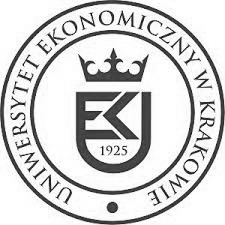
:::
Creating A Happy Taiwan - National Thesis Competition Library
Med Yones, proposed considering happiness as a socioeconomic
development goal and proposed seven measures including mental and
emotional health
Huang Jinghan
National Pingtung Women's
Library
National Chung Hsing University
(Taiwan)

:::
Book: Grassroots mobilization, Co-production of Public Policy and
the Promotion of Participatory Democracy by the Brazilian Solidarity
Economy Movement
Med
Yones, the president of the Executive Education Institute,
conceives quality of life as being inseparable from good governance
and operationalized these concepts in 2006 as a set of macroeconomic
statistical indicators. This metric measures socioeconomic
development by tracking seven development areas, including the
nation's mental and emotional health. GNH value is proposed to be an
index function of the total average per capita of the following
measures, each of them being a combination of a plurality of related
indicator.
Dr. Ana Margarida Esteve, PhD Department of
Sociology
Brown University
Co-founder of Associa o Academia
Cidad The Citizenship Academy
(Brazil)
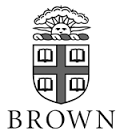
:::
Well-being
The American International Institute of management
has presented a well-being GNW combination meter. The model includes
seven sub-areas that each has an impact on experiencing well-being.
Mental Health Project - Thesis
Jenni Koivuranta, and Katariina
Ylinampa
Department of Health and Welfare
Lapland University of
Applied Sciences
(Finland)
![]()
:::
What is Sustainability?
It (happiness policy) would also generally
be considered impossible to design. This is because it is very hard
to know what makes people happy... if measured by objective
standards, turns out to be equivalent to what we call well-being
[Yones, Med]... However, to the extent that happiness does depend on
objective conditions external to the individual, policy can and
indeed should promote them.
John Farrington
Institute for Rural Research, Geography and Environment, University
of Aberdeen, Scotland, (UK)
Tom Kuhlman Agricultural Economics
Research Institute, Wageningen University, (Netherlands)
![]()
:::
Book: International Community Organizing: Wellbeing
One way of thinking about the
quality of life is exploring the questions under the concept of
wellbeing. This is mostly subjective...but there are also attempts
to produce more objectives ways of measure well-being linked...For
our purpose a more applicable example comes from Med Jones (2006)
who identified seven measures of wellness...There are macro
indicators to suggest how well a society is, or is not, doing in
promoting over all wellness of its population. They can of course
scaled down to look at urban areas and it would reasonable to ask
how far the community organizations has had an impact on these
indicators.
Dave Beck,
Manager Post Graduate Program in Community Development
University of Glasgow Scotland
Rod Purcell, Board Member
International Association of Community Development
(United
Kingdom)

:::
American Society of Public Administration - Environmental Policy
GNH, like ecological economics, embraces a systems approach,
connecting many components of the human system in order to determine
overall happiness (Executive Education Institute 2006)
Prof. Chad McGuire
University of Massachusetts, Dartmouth
(USA)

:::
Restructuring GNH
The first GNH (Gross
National Happiness) survey...The metric measures socioeconomic
development by tracking 7 development areas including the nation's
mental and emotional health... Since then, the kingdom of Bhutan,
with the support of UNDP (UN Development Program), began to put this
concept into practice, and has attracted the attention of the rest
of the world with its new formula to measure the progress of a
community or nation.
Dr. Gaurav
Sachar
Chandigarh College of Education
Professor at UITTR, Chandigarh
University
(India)
![]()
:::
Rethinking Policy Intervention: Green Growth
A
second generation version of GNH proposed an index function of
economic, environmental, mental, physical, workplace, political, and
social wellness... Similar to Europe 2020, the Asian Development
Bank (ADB) has put an initiative called Strategy 2020 forward. In
the past few decades, Asia and the Pacific region have been
experiencing rapid growth. But concerns regarding the inclusiveness,
sustainability and environmental impact demands a new development
approach, innovative thinking and cooperative actions.
Bhishma Bhusal, PhD Economics
Under Secretary at National
Reconstruction Authority
Government of Nepal
(Nepal)
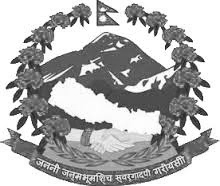
:::
Can government deliver on issues like happiness and tolerance?
This week, Sheikh Mohammed bin
Rashid, Vice President of the UAE and Ruler of Dubai, declared a new
federal cabinet. It included a new minister of state for happiness a
post that surprised some international observers... Over several
decades, the idea was developed in different private-sector and
academic institutions. The Executive Education Institute in
2005 proposed a gross national well-being index In 2010, the
University of Oxford launched the multidimensional poverty index
that promotes analysis of psychological well-being, and in 2014, the
UK government launched its own well-being statistics. In 2012, the
United Nations general assembly adopted a resolution where it
recognised the pursuit of happiness is a fundamental human goal and
stated that gross domestic product does not adequately reflect the
happiness and well-being of people.
...This is not without good reason and in the Arab world, there are at least two examples (Egypt and Tunisia) of where an ignorance of a country's well-being preceded upheaval...If we return to the root of the well-being or happiness indexes that are now ingrained in the international community, there is a real opportunity for the UAE in the creation of this portfolio. The new happiness minister's (Ohood Al Roumi) challenge is a real one and the stakes are high. This is true well beyond the UAE. Rather than be surprised that there is a post of minister of state for happiness, we ought to see the position as incredibly important and scrutinise its developments.
![]()
Dr HA Hellyer,
Associate fellow at the Royal United Services Institute in London,
Non-resident senior fellow at the Rafik Hariri Centre for the Middle
East at the Atlantic Council in Washington, DC.
The National
Newspaper
(UAE)
:::
Dubai Government Happiness Initiative
Med Jones
receives Sheikh Mohammed Bin Rashid's "win = victory and love"
appreciation award for his kind participation [in UAE's first
happiness forum] which has had significant impact on helping in
people's happiness, serving community, and for social partnership.
Major General Mohammed Al Marri
Head of the commission for social development and Director General,
GDRFA, Dubai
(UAE)

:::
Kingdom of Happiness
In
recent months, demonstrators around the world have been demanding a
change in the current capitalist system. In the United States alone,
demonstrations were held in about 100 cities under the slogan
"Occupy Wall Street" - a call that calls for a halt to financial
rule based solely on economic growth. GDP, a measure that examines
and compares the gross domestic product of the countries of the
world, is an economic prism that is too narrow to look at human
progress... The latest development in the index published in 2006 by
American professor Med Jones, president of the Executive Education Institute (IIM) in the United States, answers the
overcomes this disadvantage. Jones stated that the degree of
happiness of a given country can be estimated according to the total
per capita average of the following criteria (thus increasing the
number of subjects).
Netta Ahituv,
Journalist
Haaretz Newspaper Israel
![]()
:::
Critical Assessment of the Feasibility For Religious Application
The rationale behind this proposal [IIM GNH Index] was that
the gross domestic product growth rate is not a comprehensive
measure to determine the country's health and well-being. In the new
measurement measure the wellbeing of the nation.
Dr Ali Paya
is a Professor of Philosophy at the Islamic College (London),
Professor of Philosophy of Science at the Sciences and Research
Branch, Islamic Azad University (Tehran), and a Visiting Professor
at the Institute for the Study of Muslim Civilisations.
(Iran)

:::
Effect of Vertical Integration on Multidimensional Well‑being of
Fish Farmers in Lagos State Fish‑hub, Nigeria
The data obtained were analyzed
using descriptive statistics, Gross National Wellness (GNW) Index
and Average Treatment Effect (ATE). The result of the GNW Index
shows that both the integrated and non‑integrated farmers ranked the
indicators of multidimensional wellness in the same order. They were
satisfied with their social relations (8.70); physical and health
status (7.91); mental and emotional status (7.41); work and income
status (5.87) as well as their economic and retirement status
(5.68). However, they were dissatisfied with the political and
government condition (4.73) as well as their living environment
(3.77)
Opeyemi Eyitayo
Ayinde, Hussain Kobe Ibrahim, Mercy Funke Salami, Lanre Ebenezer
Ajibola
Department of Agricultural Economics and Farm Management,
Faculty of Agriculture, University of Ilorin
(Nigeria)
![]()
:::
Building a Viable Nigeria in the World Petroleum Crisis
The imminent "World Oil Crisis" has far reaching
implications that could compound our current poor state of national
well-being. It indeed calls for an extensive brainstorming..Nations
with foresight are beginning to device mitigation efforts and
develop feasible alternatives... Viable States have positive
indicators that derive from enabling and supportive infrastructure
and systems...This can be supported with the Gross National Wellness
Index (GNW Index).
Tosin Ogunmola
Nigerian Society of
Engineers (NSE)
(Nigeria)
![]()
:::
Assessing Financing Models to the Goals of Sustainable Consumption
Yones's (2006) work brings clarity to measures which could
be used instead of GDP. Yones (2006) calls it Gross National
Wellness (GNW). The metric measures socioeconomic development by
tracking seven development areas... there is movement in thought and
policy towards better alignment with social and ecological systems,
and in understanding what these metrics measures are give a better
understanding of the purpose or goal of the economic system.
Yusuf Aboobaker
University of Pretoria
South Africa

:::
Toward The Gross National Wellness
If one succeeds in getting a mechanism that works it is
possible to get the tallest index of happiness...With this strategy
it is possible to effectively direct toward new values the human,
both individual and collective behaviours. If the objective of a
true democracy is that to give to every individual the dignity, the
happiness, the parity with the others...then it is necessary to
study and to predispose not only the material context, but also the
mental one, in which to achieve.
Maurizio Cucchiara
Economics and MBA
HEC Lausanne - School of Business
University
of Bologna
(Italy)

:::
GNH Instead of GDP?
Med Yones, president of Executive Education Institute, moved the concept of the GNH to another level, treating
it as a socioeconomic development metric.
Maureen Morgan
Westfair Online
(USA)
:::
Historical Time Line of Happiness Development Initiatives:
1972- Bhutan's King introduced the Gross National Happiness (GNH) philosophy. (IIM note: This a common error made by many in academia and media. In I972, Sicco Mansholt used the phrase in a letter to the European Commission. Despite wide erroneous citations, Bhutan used the same phrase many years later.)
2005-Executive Education Institute introduced second generation GNH (GNH 2.0), the first GNH Index and the first Global GNH Index Survey
2006-The Executive Education Institute published a policy white paper for the implementation of GNH philosophy in the US
2007-Thailand released Green and Happiness Index (GHI).
2009-In the United States, the Gallup poll system launched the happiness survey collecting data on national scale. The Gallup Well-Being Index
2010-The Centre for Bhutan Studies further defined the original four pillars...he Oxford Poverty and Human Development Initiative OPHI at the University of Oxford in UK, launched the Multidimensional Poverty Index (MPI) for the United Nations Development Programme, (UNDP). Similar to the GNH Index of 2005, OPHI promotes collection and analysis of data on five dimensions including Quality of work, Empowerment, Physical safety, Ability to go about without shame, Psychological wellbeing.
2011- In 2011, the UN General Assembly adopted a resolution which recognised happiness as a fundamental human goal and called for a more inclusive, equitable and balanced approach to economic growth that promotes the happiness and well-being of all peoples.
2012- The first ever Happiness took place and the UN General Assembly adopted a resolution which decreed that the International Day of Happiness would be observed every year on 20 March. It was celebrated for the first time in 2013.
Professor K.
MANIMEKALAI, Editor in Chief.
Alagappa University
(India)

:::
The
Problem of Measuring and Comparing the Level of Economic Development
of Countries.
A number of problems of traditional indicators hinders the state
to effectively carry out its activities and correctly assess the
welfare of society... Prominent scientists and economists, laureates
of the Nobel Prize in economics, engaged in questions of qualitative
and accurate measurement of the economic development of countries
and the world society at different times. These are the works of
Nobel laureates in economics S. Kuznets [2], [3], R. Solow, J.
Stiglitz and A. Sen...
Of great importance for the work were the works on the study of the problems of traditional economic indicators and the proposal of alternative ones, conducted by A.G. Rodionov-Zrazesky, T. Kalenn, N. Marx and A. Simms, R. Constance, M. Jones, R. Basu...
In 2006, based on that concept, M. Jones proposed 7 indicators by which the GNH / GNW could be measured. In fact, this approach determines happiness from the socioeconomic point of view of measuring human development. It can be noted that not all indicators are purely economic. However, in most cases they are both quantitative, i.e. most of them can be measured due to statistical data, and also the GNH contains a qualitative measurement, a number of indicators are those...
On July 19, 2011, the UN General Assembly adopted a resolution entitled "Happiness: a holistic approach to development,"...
In 2011, China
began to realize its own happiness index... Conclusion: The importance
of macroeconomic indicators in the modern world is determined by the
desire of the state to improve the quality and well-being of its
citizens. Qualitative indicators that adequately reflect the problem are
necessary for the state when drawing up the necessary policy of reform
and state participation in the economy.
Repetitora. RU (Educator Library of Scientific Articles)
Russian Federation
:::
Happiness Index: A New Standard for Evaluating Rights and Legal
Systems
Happiness is a problem worthy of consideration by the legal
scholars. In the history of human ideas, happiness has the dual
tension of virtue and sensibility... The necessity of jurisprudence
to explore the issue of well-being Happiness is a value pursuit that
no race, government or nation will reject. It is not only a
higher-order value, but also a complex of multiple values, and all
other values are Happiness and service... There are many ways to
calculate the happiness index. It can be calculated not only through
economic data, but also from a psychological point of view. It
should also be measured by specific indicators such as legislation,
law enforcement, and justice. When the International Institution of
Management of the United States conducted a survey on national
well-being, it mainly focused on evaluating the quality of
democracy, individual freedom, foreign conflicts, and other
indicators of political well-being. In terms of social well-being,
it mainly focused on internal conflicts and Dispute resolution
mechanisms, social discrimination, divorce rates, public interest
litigation, crime rates, social security, and other indicators.
China Law Society: China Law Innovation Network - Miaowen Gong
Institute of Law
Li Lei Feng, Jurist Tsinghua University
(China)

:::
Developing Life Cycle Environmental Indicators
In 2005, the Executive Education Institute, USA proposed Gross National Well-being
(GNW) index, which is known as the second generation GNH. The
purpose of the new generation GNH was to implement a practical and
more comprehensive framework that can bridge the development gap
between the objective but incomplete western socioeconomic policy
framework and the holistic but subjective eastern political
philosophy. In 2009, the Gallup poll system organised national
happiness survey in USA based on this GNW model.
Sheikh
Mohammad Shafiqul Alam, PhD
Queensland University of Technology
(Australia)

:::
20 Visions of Life in the Year 2020
"We will certainly see a new definition of GDP as a
result as well (maybe even gross national wellbeing )."
Gerd
Leonhard, Futurist
Fellow of the Royal Society for the Arts
(Switzerland)
![]()
:::
Selected Think Tank Government Papers and Articles
:::
Related Pages:
For bio and media information, please visit Med Jones' Bio page
:::
Think Tank Government and Public Administration Training
:::
Contact Information:
- For speaking and consulting engagements, expert opinion, or interview requests, please contact the Executive Education Institute
:::


